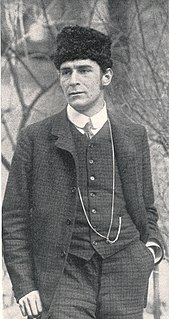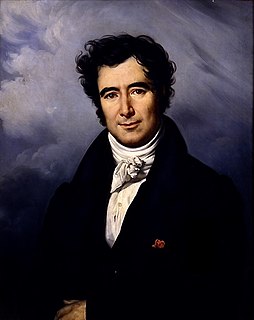A Quote by Thomas B. Macaulay
In taste and imagination, in the graces of style, in the arts of persuasion, in the magnificence of public works, the ancients were at least our equals.
Quote Topics
Related Quotes
The love of spectacles was the taste, or rather passion, of the Syrians: the most skilful artists were procured form the adjacent cities; a considerable share of the revenue was devoted to the public amusements; and the magnificence of the games of the theatre and circus was considered as the happiness, and as the glory, of Antioch.
In Paris style is everything. That is traditionally understood. Every street, every structure, every shopgirl has style. The style of Parisian architecture has been proved and refined by at least three centuries of academic dictates and highly developed taste. There are few violations of this taste, and there is exemplary architectural consistency. Paris has defined the aesthetics of a sophisticated urban culture.
The works of a person that begin immediately to decay, while those of him who plants begin directly to improve. In this, planting promises a more lasting pleasure than building; which, were it to remain in equal perfection, would at best begin to moulder and want repairs in imagination. Now trees have a circumstance that suits our taste, and that is annual variety.
So if the worth of the arts were measured by the matter with which they deal, this art-which some call astronomy, others astrology, and many of the ancients the consummation of mathematics-would be by far the most outstanding. This art which is as it were the head of all the liberal arts and the one most worthy of a free man leans upon nearly all the other branches of mathe matics. Arithmetic, geometry, optics, geodesy, mechanics, and whatever others, all offer themselves in its service.
Literature and the other arts play with pattern - our brains understand our world by recognizing patterns - and with possibility. The arts harness our sharpest senses, sight and sound, and our richest ways of understanding, in language and narrative. They were our first schools before schools were ever invented. They develop our imaginations, extend our possibilities, and deepen what we can all share.
If what the philosophers say be true, that all men's actions proceed from one source; that as they assent from a persuasion that a thing is so, and dissent from a persuasion that it is not, and suspend their judgment from a persuasion that it is uncertain, so likewise they seek a thing from a persuasion that it is for their advantage.
But where only a free play of our presentational powers is to be sustained, as in the case of pleasure gardens, room decoration, all sorts of useful utensils, and so on, any regularity that has an air of constraint is [to be] avoided as much as possible. That is why the English taste in gardens, or the baroque taste in furniture, carries the imagination's freedom very far, even to the verge of the grotesque, because it is precisely this divorce from any constraint of a rule that the case is posited where taste can show its greatest perfection in designs made by the imagination.
The ancients had a taste, let us say rather a passion, for the marvellous, which caused grouping together the lofty deeds of a great number of heroes, whose names they have not even deigned to preserve, and investing the single personage of Hercules with them. In our own time the public delight in blending fable with history. In every career of life, in the pursuit of science especially, they enjoy a pleasure in creating Herculeses.

































